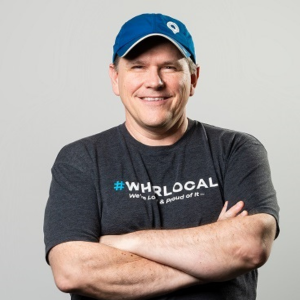Last Friday night, a crowd gathered at the Salem Convention Center for the 2025 SAIF Agri-Business Banquet, hosted by the Salem Area Chamber of Commerce, an annual event celebrating the resilience and innovation of Oregon’s agricultural community.
As the keynote speaker took the stage, it was clear this was no ordinary story. Jeanne Carver, founder and president of Shaniko Wool Company, captivated the audience with a journey that began on the high desert plains of Eastern Oregon and has since reshaped the global wool industry.
Jeanne’s life and work embody what it means to embrace change, adapt to challenges, and pioneer new solutions. “Our story is one of an unexpected journey down a timeless, but largely forgotten road,” Jeanne said in her speech. “We’re still pioneering, and we’re fighting to remain relevant and sustainable as a family business and as an industry.”
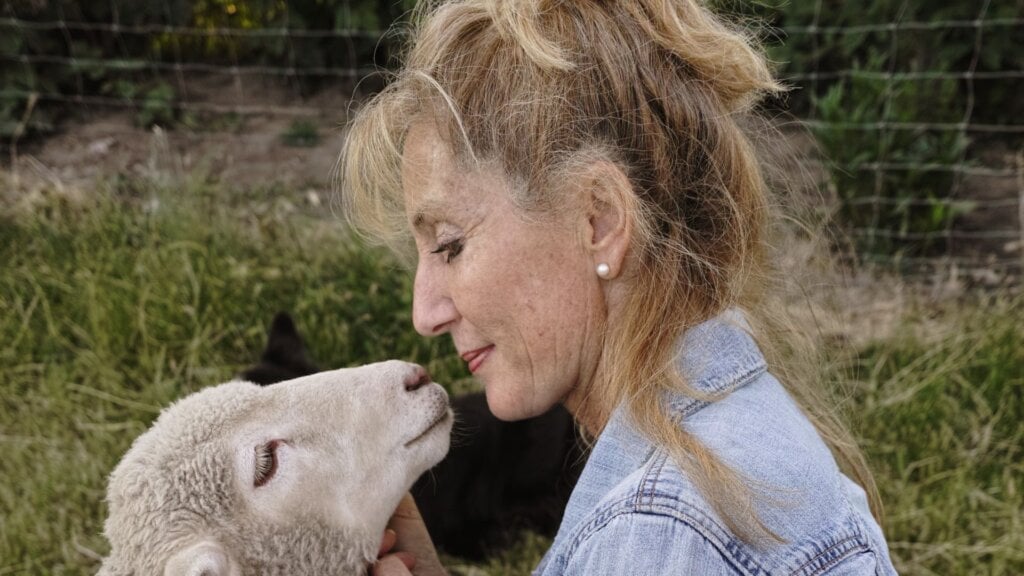
A Legacy Rooted in Oregon’s High Desert
The foundation of Jeanne’s story begins with Imperial Stock Ranch, a historic family ranch established in 1871. Located in Oregon’s high desert about 90 miles north of Bend, the ranch has operated continuously for over 150 years, producing sheep, cattle, grains, and hay. But it wasn’t always smooth sailing.
Jeanne and her late husband, Dan Carver, took over the ranch in the late 1980s, inheriting not only a legacy but also the responsibility to adapt the ranch to modern challenges. “Dan believed that to see the land win was the ultimate goal,” Jeanne shared. Together, they focused on conservation practices like rotational grazing and no-till farming, which improved soil health, protected riparian zones, and even helped revive salmon runs in nearby streams. By 2010, thousands of salmon had returned to spawn in streams where, years earlier, there had been only two.
This deep commitment to sustainability became the foundation for everything Jeanne and Dan would achieve. “We’ve always recognized we’re temporary stewards,” Jeanne explained. “It’s our responsibility to do the best we can while it’s our turn.”
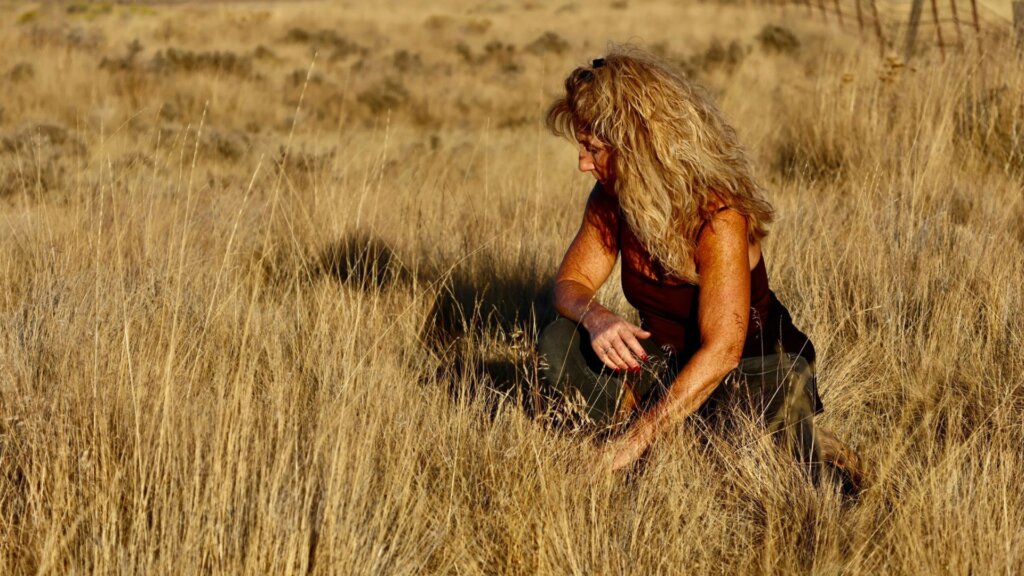
Turning Crisis Into Opportunity
In 1999, Jeanne and Dan’s work took a dramatic turn. For decades, the ranch sold its wool to a processing company that had been their partner for over 100 years. That year, the company closed its doors and moved operations overseas, leaving Jeanne and Dan with a painful question: What now?
Dan turned to Jeanne and challenged her to find a way to keep their sheep on the land. “How do you tell the Creator that what we’ve been given doesn’t matter anymore?” Jeanne reflected. What followed was a leap of faith. Jeanne began to market their wool directly to consumers and brands, building relationships with artisans, manufacturers, and retailers across the U.S.
“I didn’t know anything about retail, wholesale, or even what a margin was,” Jeanne admitted. “But when people told me wool had no value and couldn’t be made in America anymore, it made me angry. And I guess I set out to prove them wrong.” Over time, Jeanne developed a fully traceable wool supply chain that emphasized sustainability, quality, and the heritage of the ranch. Her efforts paid off when major brands like Ralph Lauren took notice.
On the World Stage
In 2012, Jeanne received a call that would put her work on the global stage. A product developer from Ralph Lauren asked if the ranch could supply wool for Team USA’s uniforms at the Winter Olympics. “I couldn’t believe it,” Jeanne said. “I was sitting in the middle of the Oregon desert, talking to someone on Madison Avenue!”
Jeanne invited Ralph Lauren’s design team to the ranch to see the land, meet the animals, and experience the care that went into every fiber. The result? The first Made-in-America uniforms for Team USA in decades. The project brought widespread attention to Jeanne’s work and opened doors to collaborations with some of the world’s most influential fashion brands.
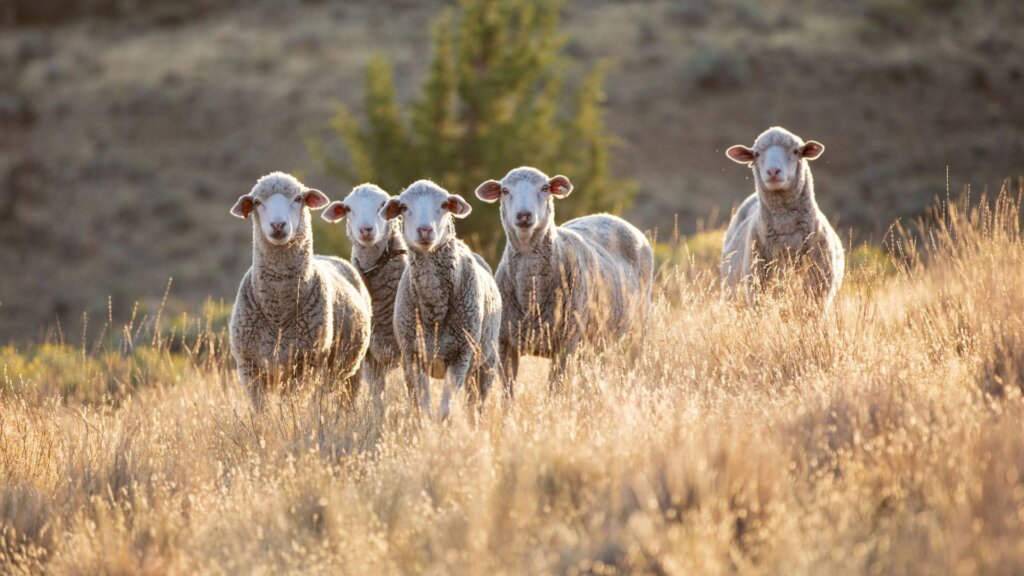
Her commitment to sustainability didn’t stop there. In 2016, Imperial Stock Ranch became the first ranch in the world to be certified under the Responsible Wool Standard (RWS), a global benchmark for ethical and sustainable wool production. Jeanne has since become a global advocate for responsible textiles, sharing her story at conferences and working with brands like Patagonia to rebuild trust in wool’s sustainability.
Regenerative Agriculture and Carbon Impact
Jeanne’s most recent and perhaps most groundbreaking work focuses on regenerative agriculture and climate action. Partnering with scientists from Oregon State University, Jeanne launched the Shaniko Wool Carbon Initiative, a comprehensive effort to measure the environmental impact of their ranching practices.
The results have been astounding. Over four years, Jeanne’s ranch has added 60,000 tons of carbon to its soils; equivalent to removing 218,000 tons of CO2 from the atmosphere. These findings not only demonstrate the environmental benefits of sustainable grazing but also open new income streams for ranchers through carbon credits.
“This is the greatest work I’ve ever done,” Jeanne said. “It proves agriculture’s value as a solution to climate challenges, and it’s creating opportunities for family ranches to thrive in new ways.”
Today, the Shaniko Wool Company includes 10 ranches across seven states, collectively grazing over 2.6 million acres. Each ranch adheres to rigorous environmental and ethical standards, making Shaniko Wool the only U.S.-based wool certified to leading global benchmarks. For participating ranchers, the certification increases the value of their wool by 20 to 25 percent, a critical boost in a challenging industry.
Weaving a Future of Sustainability
Despite the accolades, international recognition, and groundbreaking achievements, Jeanne remains deeply connected to her roots. “I didn’t plan any of this,” she said. “I just wanted to keep sheep on the land.”
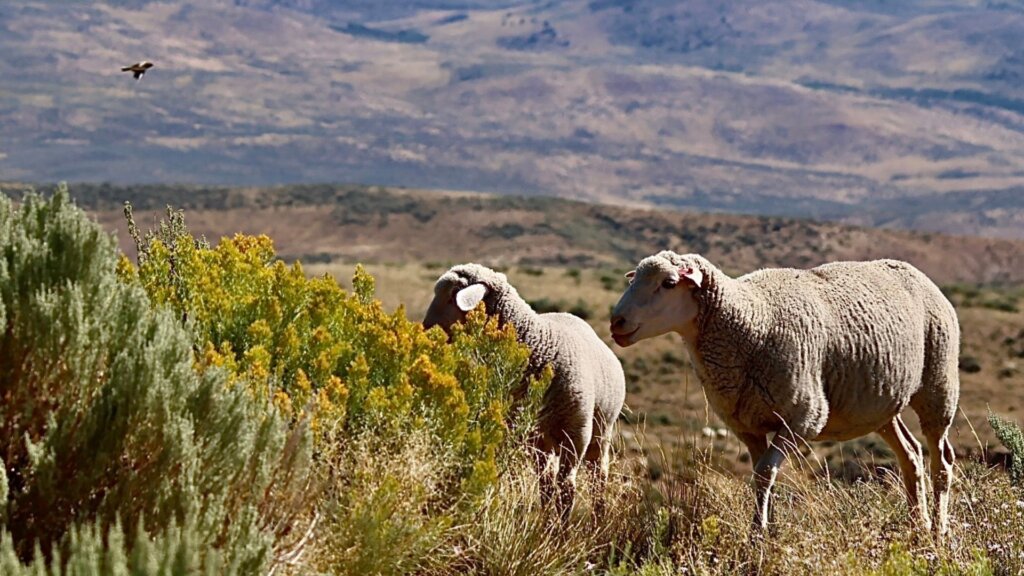
Through Shaniko Wool Company, Jeanne is building a future where American wool is not only valued but celebrated. Her work has restored pride in a forgotten industry, created sustainable pathways for family ranches, and connected people to the land in meaningful ways.
As she closed her keynote speech, Jeanne left the audience with a message of hope and perseverance. “The work never gets easier. The challenges will always be there,” she said. “But like many others in family agriculture, we’re carrying on. We’re surviving. And we’ll continue to pioneer new directions in response to changing markets.”
For Jeanne Carver and Shaniko Wool Company, the story is far from over and it’s one that continues to inspire.
About Shaniko Wool Company
Shaniko Wool Company is dedicated to producing sustainable, fully traceable, and ethically sourced wool while supporting multi-generational family ranches across the Western United States. Certified under the globally recognized Responsible Wool Standard (RWS), Shaniko Wool partners with ranchers committed to land stewardship, animal welfare, and regenerative agricultural practices.
With a focus on environmental sustainability, Shaniko Wool has also launched initiatives like the Shaniko Wool Carbon Project to measure and reduce their carbon footprint while delivering climate-positive solutions. Their work continues to elevate American wool on a global stage, providing high-quality fiber to fashion and textile brands worldwide.
Learn more about their mission and initiatives at shanikowoolcompany.com.
##

